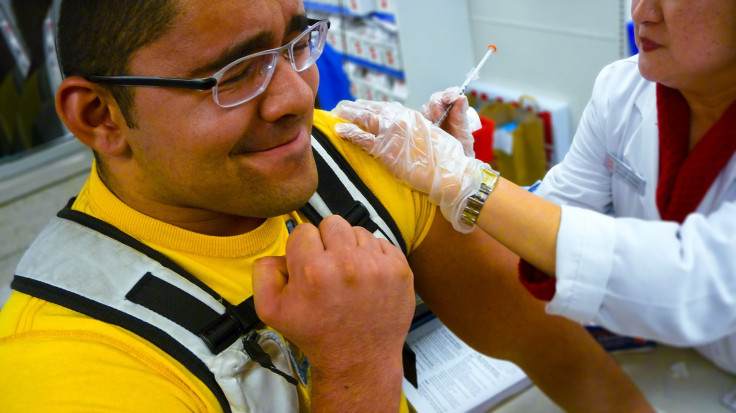It's Not Just Influenza: Flu Shot May Protect Against Stroke As Well

Though relatively rare in the grand scheme of things, the impact of developing a stroke can reverberate for years afterward, depleting a sufferer’s finances and quality of life. It’s why any incremental step in reducing the risk of stroke would be widely welcomed by the medical community.
As it turns out, however, one such intervention may already exist, according to a new study published in the journal Vaccine. The study’s authors found that influenza vaccinations may reduce the chance of stroke within the first 60 days after administration.
"Our findings support current recommendations for the flu vaccination in people at high risk, but with the added effect of stroke prevention," said study author Dr. Niro Siriwardena, professor of primary and pre-hospital health care at the University of Lincoln, in a statement. "Our study demonstrated that the earlier the vaccination is delivered the greater the linked reduction in stroke risk, so this should also encourage early vaccination."
Studying the medical records of nearly 18,000 individuals over the age of 18 who had come down with stroke, the authors crunched the numbers on how likely someone was to develop a stroke in the 180-day time period after their confirmed flu shot when compared to the rest of the year — an analytical method known as a self-controlled case series that is commonly used in research looking at the benefits and risks of vaccination.
In the first three days after a shot, stroke risk was reduced by 55 percent; by 36 percent from four to seven days; and by 17 percent from 29 to 59 days afterward. This protection effect was likewise strongest in people who had taken their shots early on in the flu season, from September to November.
As the authors note, this is only the latest study to suggest that the benefits of vaccination extend to stroke prevention. Earlier last September, Medical Daily reported on a study on the opposite end of the age spectrum, which found that children with a poor vaccination history had a (slightly) evaluated risk of stroke compared to children who had gotten all their shots.
It is becoming increasingly believed that infectious diseases such as the flu can inadvertently trigger stroke and related conditions, in part by causing systemic inflammation across the body, though the exact relationship between the two is still not fully understood.
Encouraging as these studies are, however, they are only able to point to a connection between vaccines and stroke risk, and do not definitively prove that the former directly influences the latter — a limitation that Siriwardena and his colleagues are aware of and hope to overcome in the future.
"We are now at the point of developing further studies into whether it could be recommended to extend vaccination to younger adults at risk of stroke," he said. "If a causative link between influenza vaccination and reduction in stroke risk is confirmed by experimental studies and if this leads to higher vaccinations rates, there would be significant benefits for patient and population health."
Source: Asghar Z, Coupland C, Siriwardena N. Influenza vaccination and risk of stroke: Self-controlled case-series study. Vaccine. 2015.



























